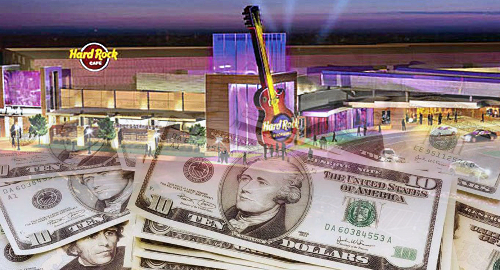 Ohio’s seven racetrack casinos reported record slot machine revenue in their most recent fiscal year, while the state’s four brick-and-mortar casinos reported only modest gains through the first half of 2018.
Ohio’s seven racetrack casinos reported record slot machine revenue in their most recent fiscal year, while the state’s four brick-and-mortar casinos reported only modest gains through the first half of 2018.
Figures released Monday by the Ohio Lottery Commission show the state’s seven ‘racinos’ generated slots revenue of $987m in the 12 months ending June 30, up 6.1% from their fiscal 2017 result. The racino slots figure has undergone steady growth in recent years, having risen more than one-third since fiscal 2015.
All seven racinos reported year-on-year slots revenue gains, led by Hard Rock Rocksino, which grew 6% to claim the lion’s share ($246.5m) of the fiscal 2018 slots take. Scioto Downs ranked second at $163.8m, while the JACK Thistledown venue placed third with $121.4m.
Monday also saw the Ohio Casino Control Commission release a report card on the state’s four brick-and-mortar casinos through the first half of 2018. The four casinos earned combined slots and table revenue of $420.5m, up 2% from the same period last year.
Three of the casino reported gaming revenue gains, led by Penn National Gaming’s Hollywood Casino Columbus at $115m, while last-place finisher JACK Cincinnati venue bucked the gainer trend by posting basically flat revenue at $100.7m.
The racinos outperformed their casino rivals in the month of June, earning $87.4m in slots revenue, up significantly from $78m in the same month last year. The four casinos generated total revenue of $67.1m in June, up from $64m, thanks entirely to table revenue, which posted solid gains while slots revenue staged a minor year-on-year retreat.
There’s been little signal from Ohio legislators as to when the state’s gaming operators might be able to add sports betting to their offering. Gov. John Kashich’s office has so far said only that he’s considering the possibility following May’s US Supreme Court ruling that struck down the federal betting ban.
Last month, Cleveland.com reported that the state’s casino operators may balk at adding legal wagering if the state applies the same 33% tax rate that currently applies to non-slots games. A similarly high sports betting tax rate has been imposed in neighboring Pennsylvania, which may account for the fact that no casino operator has yet filed an application to offer sports betting in the state.